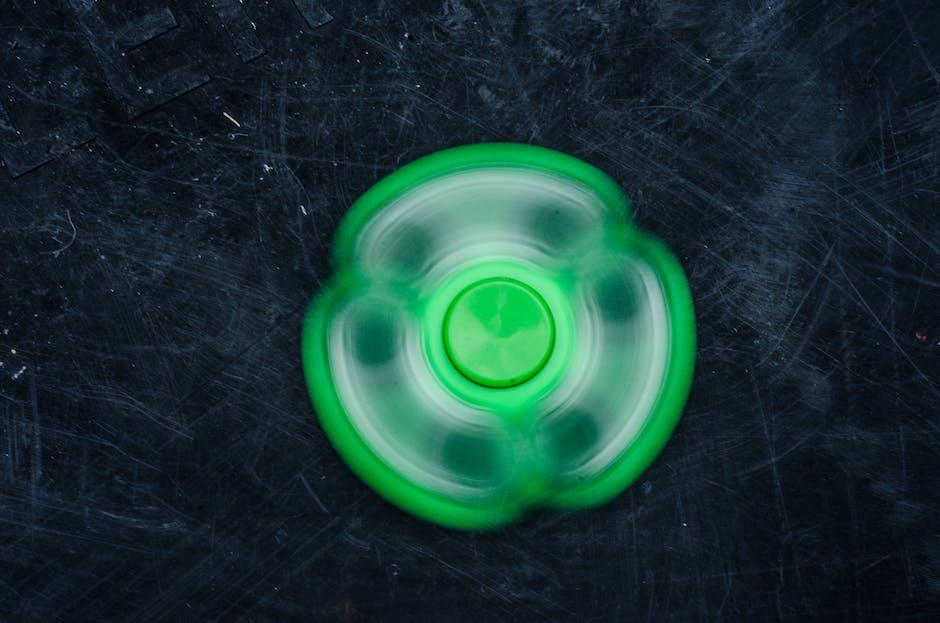What Role Do Probiotics Play In Supporting Mental Health?
Ever heard the saying, “trust your gut”? Turns out, it’s not just a quirky phrase—it’s science. Probiotics, those friendly bacteria found in certain foods and supplements, play a surprising role in supporting your mental health. From boosting your mood to helping manage stress, these tiny microorganisms are like the unsung heroes of your brain’s well-being.
But how does something living in your gut influence your mind? And can eating yogurt really make you happier? Stick around, and we’ll dive into the fascinating connection between your gut and your brain. Spoiler alert: it’s more important than you think.
Key Takeaways
- Probiotics are beneficial bacteria that support gut health and, in turn, mental health.
- The gut-brain axis is a communication highway between your digestive system and your brain.
- Probiotics can influence mood, anxiety, and even cognitive function by regulating neurotransmitters and reducing inflammation.
- Incorporating probiotics into your diet through food or supplements may help manage conditions like depression and anxiety.
Introduction to Probiotics and Mental Health
Definition of Probiotics
Let’s start with the basics. Probiotics are live microorganisms, often referred to as “good bacteria.” They naturally live in your gut and help maintain a healthy balance of bacteria in your digestive system.
Think of your gut as a bustling city. Probiotics are the friendly citizens keeping everything running smoothly—breaking down food, fighting off harmful bacteria, and even producing vitamins.
You can find probiotics in fermented foods like yogurt, kimchi, and sauerkraut, or in supplement form. But their benefits go way beyond digestion.
Overview of the Gut-Brain Connection
Here’s where things get wild. Your gut and brain are constantly chatting through something called the gut-brain axis. This is a two-way communication system involving nerves, hormones, and even your immune system.
Ever had “butterflies” in your stomach before a big event? That’s your gut-brain axis in action. It’s proof that what happens in your gut doesn’t stay in your gut—it affects your brain, too.
Importance of Gut Health in Mental Well-Being
Your gut is home to trillions of bacteria, collectively known as the gut microbiome. When this microbiome is out of balance—say, from stress or a poor diet—it can lead to inflammation and other issues that affect your mental health.
In fact, studies have shown that an unhealthy gut can contribute to conditions like depression and anxiety. That’s why keeping your gut happy is so crucial for your overall well-being.

How Probiotics Influence Mental Health
The Gut-Brain Axis and Its Role in Mood Regulation
The gut-brain axis isn’t just a one-way street. Your gut sends signals to your brain, and your brain sends signals back. Probiotics help keep this communication smooth by maintaining a healthy gut environment.
When your gut is balanced, it can produce chemicals like serotonin and dopamine—neurotransmitters that regulate mood and emotions.
Impact of Gut Microbiota on Neurotransmitter Production
Serotonin and Its Connection to Gut Health
Did you know that about 90% of your body’s serotonin—the “feel-good” chemical—is made in your gut? Probiotics help stimulate the production of serotonin, which can improve mood and reduce symptoms of depression.
GABA and Its Role in Reducing Anxiety
Another key player is GABA (gamma-aminobutyric acid), a neurotransmitter that calms your nervous system. Certain probiotic strains, like Lactobacillus, can boost GABA levels, helping to ease anxiety and promote relaxation.
Probiotics’ Effect on Inflammation and Stress Response
Chronic inflammation is a sneaky culprit behind many mental health issues. Probiotics can help by reducing inflammation in the gut, which in turn lowers inflammation in the brain.
They also regulate your body’s stress response by influencing cortisol levels, the hormone responsible for stress.

Probiotics and Specific Mental Health Conditions
Role of Probiotics in Managing Depression
Research Findings on Probiotics and Depressive Symptoms
Recent studies suggest that probiotics may help alleviate symptoms of depression. For example, a 2023 review found that certain strains, like Bifidobacterium, can improve mood and reduce depressive symptoms (source).
Potential Mechanisms of Action
Probiotics likely work by reducing inflammation, balancing gut bacteria, and boosting serotonin production. It’s like giving your brain a little pep talk through your gut.
Probiotics and Anxiety Disorders
Studies Linking Probiotics to Reduced Anxiety
Research has also linked probiotics to lower anxiety levels. One study found that participants who consumed probiotics reported feeling less stressed and anxious (source).
Influence on Cortisol Levels and Stress Management
Probiotics can help regulate cortisol, the stress hormone. Lower cortisol levels mean less stress and a calmer mind.
Cognitive Function and Memory Enhancement
Probiotics don’t just affect mood—they may also improve cognitive function. Some studies suggest that a healthy gut can enhance memory and focus, making probiotics a potential ally for brain health.

Practical Applications of Probiotics for Mental Health
Dietary Sources of Probiotics
Fermented Foods and Their Benefits
Foods like yogurt, kefir, and miso are packed with probiotics. Adding these to your diet is an easy way to support both your gut and your mind.
Probiotic Supplements and Their Effectiveness
If fermented foods aren’t your thing, supplements are a convenient alternative. Just make sure to choose a high-quality product with clinically studied strains.
Importance of Consulting Healthcare Providers
Before diving into probiotics, it’s a good idea to consult a healthcare provider. They can help you choose the right strains and dosage for your needs.
Combining Probiotics with Prebiotics for Optimal Results
For the best results, pair probiotics with prebiotics—the “food” that good bacteria need to thrive. Think of it as planting seeds (probiotics) and watering them (prebiotics).

Challenges and Future Directions in Probiotic Research
Limitations of Current Studies on Probiotics and Mental Health
While the research is promising, it’s still in its early stages. Many studies are small or short-term, so more robust research is needed.
Need for Personalized Approaches to Probiotic Use
Not all probiotics work the same for everyone. Your gut microbiome is as unique as your fingerprint, so a one-size-fits-all approach doesn’t cut it.
Potential Areas for Future Research
Future studies could explore how specific probiotic strains affect different mental health conditions. Personalized probiotics might even become a thing someday.
Conclusion
Summary of Probiotics’ Role in Mental Health Support
Probiotics are more than just gut-friendly—they’re brain-friendly, too. By balancing your gut microbiome, they can improve mood, reduce anxiety, and even enhance cognitive function.
Emphasis on Probiotics as a Complementary Approach
While probiotics aren’t a magic cure, they’re a valuable tool in the mental health toolbox. Combined with other treatments, they can make a real difference.
Encouragement for Further Exploration and Consultation with Professionals
Curious about trying probiotics? Start with small changes, like adding fermented foods to your diet. And don’t forget to chat with a healthcare provider to find what works best for you.
For more on how gut health impacts mental well-being, check out this guide. Or, dive deeper into the link between gut health and mood.
Your gut—and your brain—will thank you.
FAQ: How Probiotics Can Support Your Mental Health – Let’s Explore Together!
What are probiotics, and how do they work?
Probiotics are live microorganisms, often referred to as ‘good bacteria,’ that provide health benefits when consumed in adequate amounts. They help maintain a healthy balance in your gut microbiome, which can influence various bodily functions, including mental health, by producing neurotransmitters and reducing inflammation.
How are probiotics linked to mental health?
Probiotics are connected to mental health through the gut-brain axis, a communication network between your gut and brain. A healthy gut microbiome can positively impact mood and cognitive functions by regulating stress hormones and producing mood-enhancing chemicals like serotonin.
Can probiotics help with anxiety and depression?
Some studies suggest that certain probiotic strains may help reduce symptoms of anxiety and depression by improving gut health and lowering inflammation. However, they are not a standalone treatment and should be used alongside other therapies or medications as recommended by a healthcare provider.
Which probiotic strains are most beneficial for mental health?
Strains like Lactobacillus helveticus, Bifidobacterium longum, and Lactobacillus rhamnosus have shown promise in supporting mental health. These strains may help reduce stress, anxiety, and depressive symptoms by influencing the gut-brain axis.
How long does it take for probiotics to affect mental health?
The timeline can vary depending on the individual and the probiotic strain. Some people may notice improvements in mood or stress levels within a few weeks, while others might take longer. Consistency in taking probiotics is key to seeing results.
Are there any risks or side effects of taking probiotics for mental health?
Probiotics are generally safe for most people, but some may experience mild side effects like bloating or gas initially. Individuals with compromised immune systems or serious health conditions should consult a doctor before starting probiotics.
Can I get probiotics from food, or do I need supplements?
You can get probiotics from fermented foods like yogurt, kefir, sauerkraut, kimchi, and miso. However, supplements may provide specific strains in higher concentrations, which could be more effective for targeted mental health benefits.
What role does diet play alongside probiotics in mental health?
A balanced diet rich in fiber, prebiotics, and nutrients supports the growth of healthy gut bacteria, enhancing the effectiveness of probiotics. Together, they create a synergistic effect that can positively influence mental health.
Are probiotics a replacement for therapy or medication for mental health issues?
No, probiotics are not a replacement for therapy or medication. They can be a complementary approach to support mental health but should be used alongside professional treatments as advised by a healthcare provider.
How can I choose the right probiotic for mental health support?
Look for probiotics with clinically studied strains for mental health, such as Lactobacillus and Bifidobacterium species. Check the label for the number of live cultures and consult a healthcare professional to ensure the product suits your needs.



